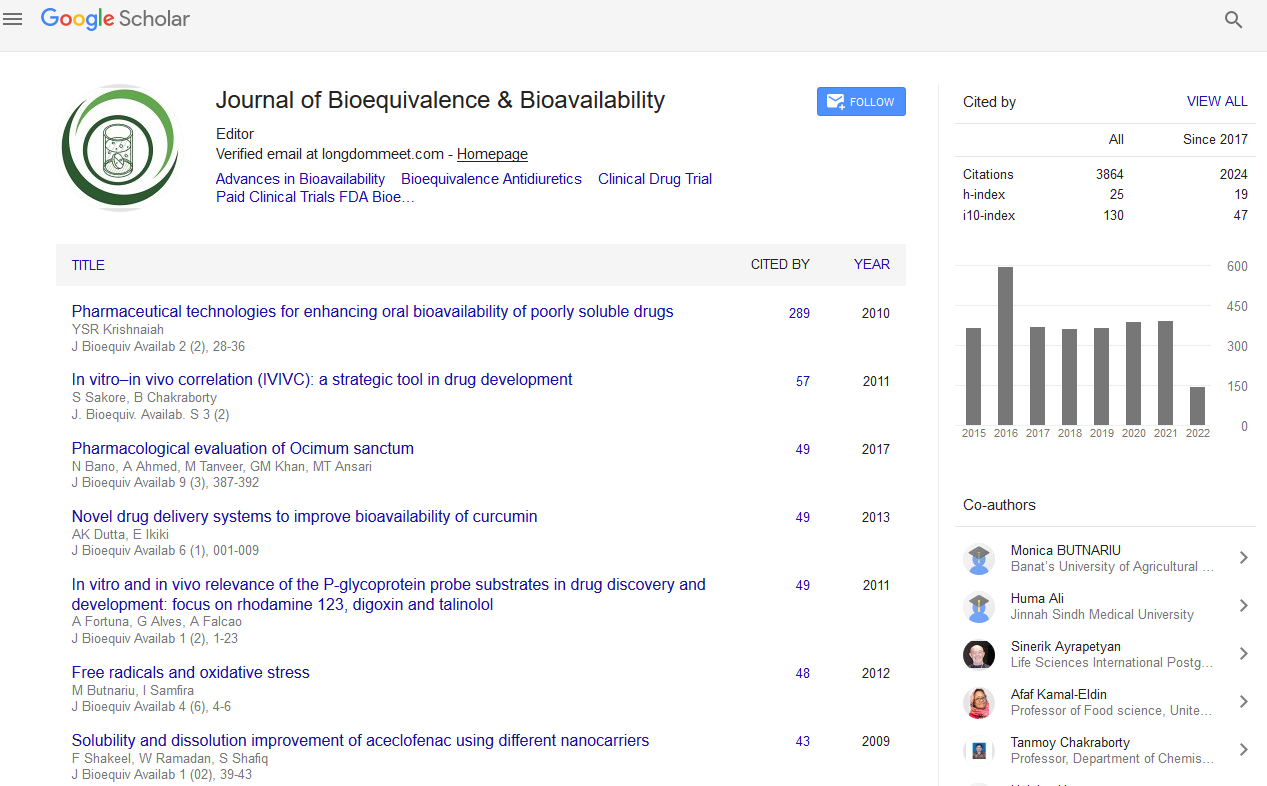PMC/PubMed Indexed Articles
Indexed In
- Academic Journals Database
- Open J Gate
- Genamics JournalSeek
- Academic Keys
- JournalTOCs
- China National Knowledge Infrastructure (CNKI)
- CiteFactor
- Scimago
- Ulrich's Periodicals Directory
- Electronic Journals Library
- RefSeek
- Hamdard University
- EBSCO A-Z
- OCLC- WorldCat
- SWB online catalog
- Virtual Library of Biology (vifabio)
- Publons
- MIAR
- University Grants Commission
- Geneva Foundation for Medical Education and Research
- Euro Pub
- Google Scholar
Useful Links
Share This Page
Journal Flyer

Open Access Journals
- Agri and Aquaculture
- Biochemistry
- Bioinformatics & Systems Biology
- Business & Management
- Chemistry
- Clinical Sciences
- Engineering
- Food & Nutrition
- General Science
- Genetics & Molecular Biology
- Immunology & Microbiology
- Medical Sciences
- Neuroscience & Psychology
- Nursing & Health Care
- Pharmaceutical Sciences
Reversible metabolic complexes for novel drug discovery
5th World Congress on Bioavailability and Bioequivalence Pharmaceutical R&D Summit
September 29-October 01, 2014 DoubleTree by Hilton Baltimore-BWI Airport, USA
Songon An
Scientific Tracks Abstracts: J Bioequiv Availab
Abstract:
S equential metabolic enzymes have long been hypothesized to form transient multienzyme complexes to regulate metabolic pathways in cells. However, it has been still challenging to monitor reversible metabolic complexes in living cells in real- time, thus making it difficult to understand underlying mechanisms of metabolic plasticity associated with human diseases. Our innovative application of fluorescence single-cell microscopy with human living cells has allowed us to discover human de novo purine biosynthetic complex, the ?purinosome?, as the first example of this cellular phenomenon in living cells. Here, we will discuss our recent progress revealing existence of two intermediate complexes that are formed prior to complete purinosome assemblies, thus indicating a step-wise assembly mechanism of the purinosome. In addition, our quantitative biophysical evidence supports that purinosomes are indeed different cellular structures from organelles and other identified granules in human cultured cells (e.g. stress granules and cytoplasmic aggresomes). Given that purine metabolism has been a validated pharmaceutical target for chemotherapeutic agents, our research characterizing fundamental mechanisms of the purinosome (and other metabolic complexes) in living cells has great potential to be translated to treat a broad scope of human diseases associated with purine metabolism
Biography :
Songon An has completed his PhD from the University of Minnesota, Twin Cities, and Postdoctoral training from the Pennsylvania State University. He is an Assistant Professor of the University of Maryland, Baltimore County (UMBC) and is also affiliated with the University of Maryland School of Medicine. He has published more than 13 articles and has been serving as an Editorial Board Member of repute


